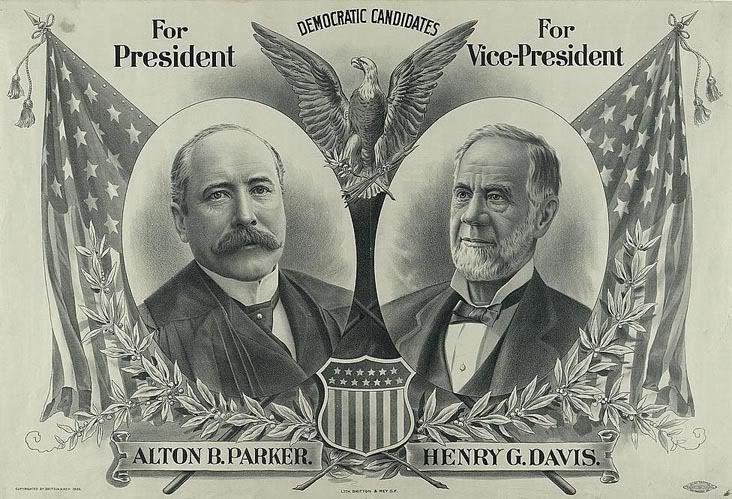
from the nytimes' special on the elections
Teddy Roosevelt served as a soldier in the Spanish-American War, New York City police commissioner, assistant secretary of the Navy and governor of New York. He also climbed the Matterhorn and went on safari in Africa. It was no surprise, then, that the energetic Harvard graduate, then serving as New York State's governor, didn't want the job of Vice President when he was selected as William McKinley's running mate in 1900. "I am a comparatively young man yet and I like to work," he said. "It would not entertain me to preside in the Senate." Roosevelt was, in fact, quickly bored with the job soon after he and McKinley were inaugurated in 1901, and he considered returning to law or joining a college faculty. But six months after the inauguration, President McKinley was killed by an assassin in Buffalo, N.Y., and Roosevelt's life got infinitely busier and more interesting. At 42, he was the youngest President ever to take office, but he had already spent 15 years in government, starting with his election to the New York State Assembly when he was 23. As President, he pushed for antitrust enforcement, promoted labor concerns, tightened railroad regulations and energetically enacted measures on behalf of conservation. Some conservatives, like former McKinley campaign manager Mark Hanna, were appalled that Roosevelt had inherited the office. "I told William McKinley it was a mistake to nominate that wild man at Philadelphia," said Hanna on McKinley's funeral train. "Now look, that damned cowboy is President of the United States!"
But Roosevelt's dynamic personality and love of controversy eventually won him a loyal following. The Republicans had no trouble renominating him in 1904.
Newspaper magnate William Randolph Hearst tried to win the Democratic nomination, but didn't get it. Some Democratic leaders tried to convince former President Grover Cleveland to make a fourth run for office, but he refused. So the Democrats decided to try to cater to voters less entranced with Roosevelt's personality and nominated New York judge Alton Parker, generally considered to be a sober man who didn't take a stand on any controversial issues.
Despite rumors raised by Parker that the Republicans accepted bribe money for its campaign coffers, Roosevelt won in a landslide.


























No comments:
Post a Comment